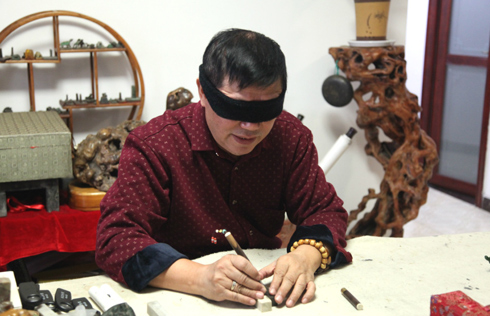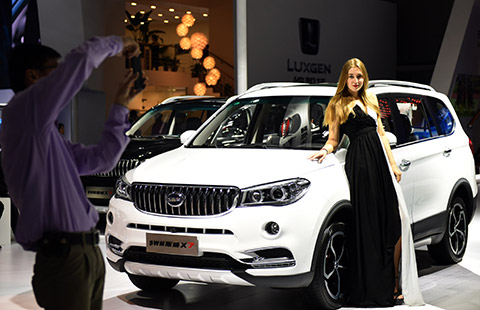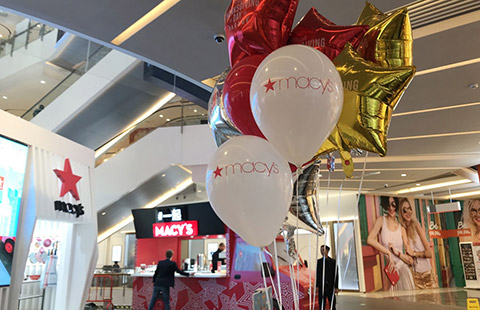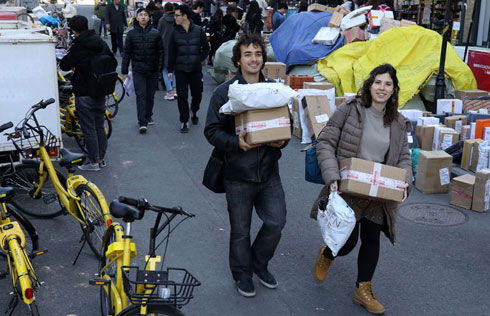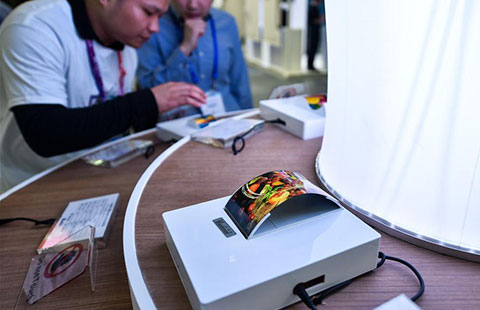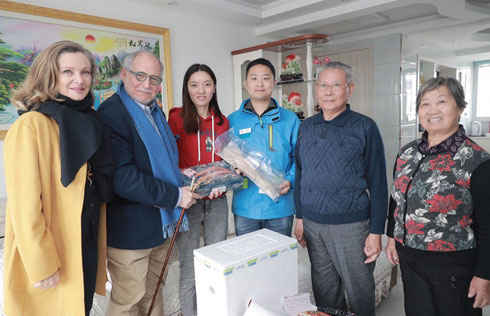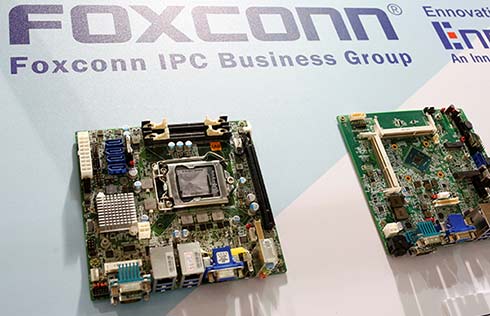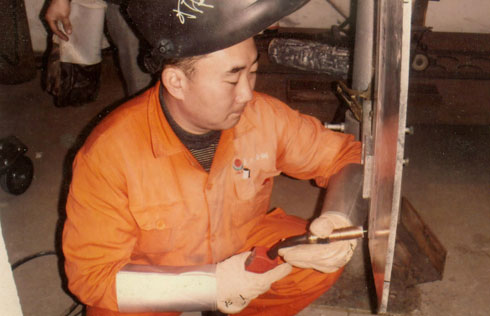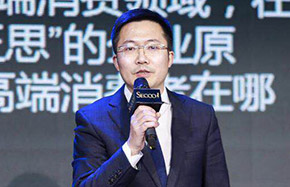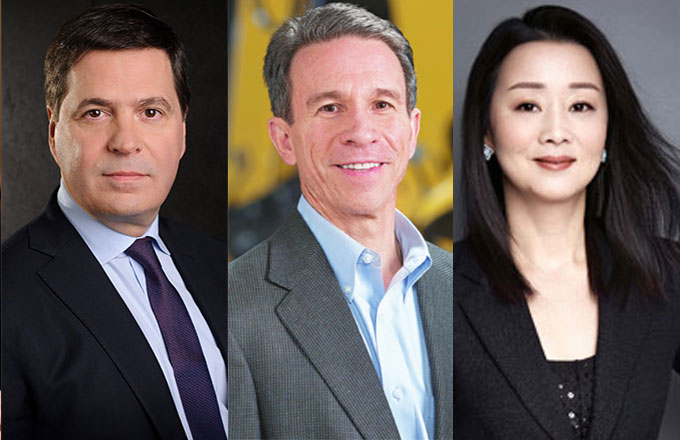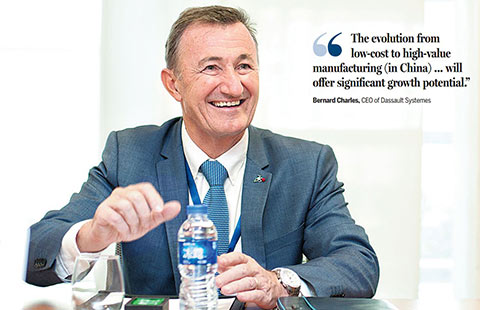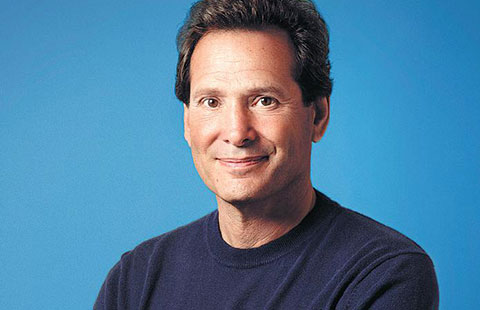VW regards China as a launchpad to transform future of e-mobility
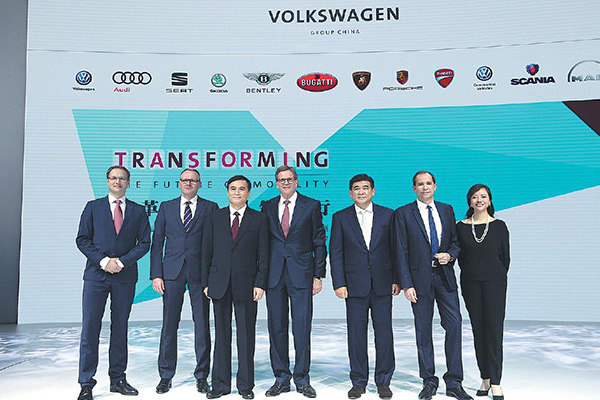 |
|
Executives from Volkswagen Group China and partner JAC Motors pose for a photo at the Guangzhou auto show. [Photo provided to China Daily] |
The carmaker will introduce more than 20 new energy vehicles into the world's largest car market between 2020 and 2025, thereby adding up to almost 40 locally produced models in the next seven to eight years, said Volkswagen Group China President and CEO Jochem Heizmann.
China is leading the way to the final breakthrough in the adoption of e-mobility and Volkswagen is determined to be at the forefront, said Heizmann.
The business chief, who is also member of the board of management of Volkswagen AG, made his remarks during the ongoing Guangzhou auto show.
Volkswagen has set out a plan to deliver 400,000 new energy vehicles to customers in 2020 and 1.5 million new energy vehicles - most of them pure battery cars - in 2025.
The massive product plan, which shows the carmaker's greater commitment to the Chinese market, came after its global e-mobility strategy, Roadmap E, was announced two months ago at the Frankfurt auto show.
The strategy heralds the most comprehensive electric offensive in the automotive industry worldwide, according to Heizmann.
To better meet its demand for battery supplies, the company has started a global tender process with a total value of more than 50 billion euros ($59 billion) for long-term strategic partnerships - including in China.
The Roadmap E strategy comes with huge investment, a large proportion of which will be made in China due to its leading position, both in e-mobility and Volkswagen's business.
Heizmann said Volkswagen Group China and its joint venture partners will invest more than 10 billion euros in the industrialization of e-mobility between now and 2025.
"I'm convinced, this is a framework that fosters innovation in all the relevant areas - not only in e-mobility," Heizmann said.
"Our traditional strengths of customer focus, quality, safety, innovation and R&D give us the firm foundation. On that, we are steadily building our new mobility priorities," he added.
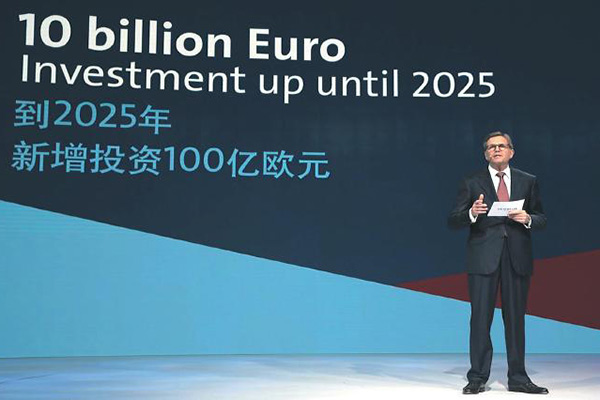 |
|
Volkswagen Group China President and CEO Jochem Heizmann delivers a speech in Guangzhou. [Photo provided to China Daily] |
It constitutes an integral part of Volkswagen's campaign, TOGETHER - Strategy 2025.
The strategy maps out its course for transformation from being a leading global car manufacturer to a provider of sustainable, people-oriented mobility solutions.
Earlier in the year, the carmaker forged valuable new partnerships with leading Chinese companies in the areas of artificial intelligence, new energy vehicle charging and premium car rental services.
At this year's Guangzhou auto show, it announced decision of the establishment of the Ezia brand to provide intelligent mobility services in China.
The brand brings together all the activities of Mobility Asia, a member of Volkswagen Group China.
The company says it will create an innovative dual ecosystem that provides customers with seamless access to a wide range of smart mobility services.
At the same time, the group has also entered into new mobility services cooperation, signing a memorandum of understanding with China Mobile Internet of Things, a subsidiary of Chinese telecom operator China Mobile.
The partner is known as an Internet of Things and telematics service platform leader, and the two will collaborate in providing smart mobility and lifestyle-related connected devices and services.
The company says the key element to succeeding during this transition period for Volkswagen, however, is remaining focused on the needs and demands of customers, including remaining attentive to their current demands.
To that end, Volkswagen says it is responding to the market's preference for spacious cars and is in the midst of a major roll-out of SUVs.
This was demonstrated by the vehicles presented by the Group's brands at the workshop: SKODA KAROQ, Volkswagen T-ROCSTAR concept and Audi Q8 sport concept as a vision of the SUV future.
"We are transforming and we will deliver," Heizmann said.




